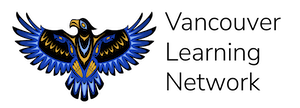English 10 Literary Studies
Literary Studies 10 Course Overview
Big Ideas
The exploration of text and story deepens our understanding of diverse, complex ideas about identity, others, and the world.
People understand text differently depending on their world views and perspectives.
Texts are socially, culturally, geographically, and historically constructed.
Language shapes ideas and influences others.
Questioning what we hear, read, and view contributes to our ability to be educated and engaged citizens.
From: https://curriculum.gov.bc.ca/curriculum/english-language-arts/10/literary-studies
Introduction
English Literary Studies 10 is a 2-credit course section in English Language Arts 10. You must complete this course section as well as one other 2-credit course section to meet the mandatory 4 credits necessary for graduation. Successful completion of this course is necessary to move on to English Studies 11.
This course aims to challenge your ability to read and comprehend different genres and forms of literature and writing. In this course, you will be asked to define, explain, rationalize, critique, discuss, analyze, and summarize many readings. You will engage with stories, poetry and cinema from a variety of personal, social, and cultural backgrounds and perspectives.
Where Does This Course Fit?
- Prerequisites: English Language Arts 9
- Graduation Status:One of the Grade 10 English Language Arts options required for graduation
Course Materials
- We strongly recommend you use a laptop or desktop computer running Windows, Word, and PowerPoint. Audio and recording capability for some of the assignments is mandatory.
- You can obtain the novels in this course from the VLN bookroom or from your local public library.
Brief Outline
Unit | Description |
Module 1: Getting Started | Focus: Getting introduced to the course and course structure. Reflecting on yourself as an English learner and creating an plan for your completion of the course. |
Module 2:Folklore | Focus: Students will explore different styles of folklore including Indigenous creation stories, fables, myths and legends, and fairy tales. We will explore the origins of folklore while viewing works from a variety of different cultures. |
Module 3: Poetry | Focus: Analytical Reading and Creative Writing. Students will read a variety of poems, learn key forms and devices, and develop detailed responses. Students will bring learning together in a final creative poetry project. |
Module 4: Independent Novel Study | Focus: Analytical reading, creative writing and analytical writing. Students will develop a variety of responses on various aspects of the novel through in depth study of literary elements, devices and rhetoric. Students will have the choice between 6 novels to choose from. |
Course Exam | Exam will focus on literary analysis and essay writing. Questions will review essential content and key skills in the folklore, poetry, and novel units. Students will develop short answer responses, paragraph responses and a short essay. |
Assessment Percentage Breakdown
Assessment Type | Percentage of the Course |
StartUp Assignments | 5% |
Assignments | 44% |
Discussions | 5% |
Projects | 26% |
Final exam | 20% |
You have up to a year after activation to complete your course.

